Question: "Hallo, fressen Erbsenkugelfische Gefriergetrocknetes Futter (Würfel)? LG "
Reply
from Kevin (Garnelio)
Hallo David, vielen dank fuer deine Frage! Ja, wenn sie hungrig genug sind. Generell bevorzugen sie aber Frost oder Lebendfutter.
Question: "Guten Tag, Ich habe ein 260 Liter Aquarium mit Roten neons, Einem Skalar, Schmetterlings Fisch und paar kleinen garnelen. Das der Erbsenkugelfisch schwierig mit kleinen garnelen zu halten ist ist mir bewusst wollte dennoch fragen ob mein restlichen besatz mit einem Erbsenkugelfisch zusammen gehalten werden kann? Und ob ich lieber einen oder mehrere der Kleinen Erbsen aufnehme wenn es denn passt? MFG."
Reply
from Kevin (Garnelio)
Hallo Svea, vielen Dank fuer deine Frage! Nicht nur ist er gefaehrlich fuer die Garnelen, er frisst auch Skalaren die Faeden ab.
Question: "Hallo, kann man die Fische mit Guppys, einen Barsch, Welsen und einer Ringelhandgarnele zusammen halten ?"
Reply
from Kevin (Garnelio)
Hallo Anna, vielen Dank fuer deine Frage! Wir raten ab, die Tiere knabbern die Flossen von Guppys ab, sowie Barteln von Welsen.
Show more customer questions
Question: "Hallo Kevin, wenn ich ich bei euch Tiere bestelle, kann ich dann bestimmen wieviele männliche , oder weibliche Tiere ich haben möchte? oder bekomme ich von euch einfach die Tiere nach einer zufälligen Auswahl zugesendet? Danke für die Hilfe"
Reply
from Kevin (Garnelio)
Hallo Robert, vielen Dank fuer deine Frage! Leider bieten wir fuer die Erbesenkugelfische keine Geschelchtsauswahl an. Wir senden zufaellig.
Question: "Handelt es sich hierbei um Wildfänge/ Importe, Deutsche Nachzuchten oder eigene Nachzuchten? Wie groß sind sie ca. Bei der Lieferung? Wird auf die Geschlechtsaufteilung geachtet? "
Reply
from Kevin (Garnelio)
Hallo Stephanie, vielen Dank fuer deine Frage! Es sind teils Nachzuchten, teils Wildfaenge, deutsche Nachzuchten markieren wir immer mit DNZ, die Tiere sind jung, relativ klein mit knapp 1-1,5cm und wir sortieren nicht nach Geschlecht.
Question: "Lassen die sich mit Kampffischen vergesellschaften oder gehen die an die Flossen? "
Reply
from Kevin (Garnelio)
Hallo Miriam, vielen Dank fuer deine Frage! Die Tiere gehen sehr gerne an Flossen. Mit Kampffischen ist es daher keine gute Idee.
Question: "Guten Tag! Ist absehbar, wann die Tiere wieder lieferbar sind? Inzwischen warte ich seit etwas mehr als 2 Monaten und habe bislang noch nichts wieder gehört. Vielen Dank!"
Reply
from Kevin (Garnelio)
Hallo Luca, vielen Dank fuer deine Frage! Leider haben wir noch keine neuen Informationen. Es gibt derzeit eine kleine Knappheit bei den Tieren, wir hoffen dies ist bald vorbei.
Question: "Hallo, Ich plane gerade ein Aquarium mit den Erbsenkugelfisch. Mein Aquarium fasst 140L. Wie viele Kugelfische kann ich in das Becken setzen? Gibt es die Möglichkeit andere Arten ( zB einen Putzerfisch, Dornauge, große Schnecken usw.) zu vergesellschaften? Wäre dankbar wenn mir in dem Punkt geholfen wird und sie mir schreiben was möglich wäre dazu zu setzen. Vielen Dank :). "
Reply
from Kevin (Garnelio)
Hallo Jennifer, vielen Dank fuer deine Frage! Du kannst hier eine kleine Truppe von 14 Tieren ohne Probleme pflegen.
Question: "Hallo Gibt es auch Salzwasserkugelfische bei euch? Und wissen sie, ob es auch Süsswasser Anemonen gibt oder nur Salzwasser? "
Reply
from Kevin (Garnelio)
Hallo Stephanie, vielen Dank für deine Frage! Es gibt nur Salzwasseranemonen. Wir haben Salzwasserkugelfische, nämlich den großen Kugelfisch.
Question: "Hallo Können die Kugelfische mit Krebsen gehalten werden, wenn das Becken gross genug ist? Und wie sieht’s mit putzwelsen aus? "
Reply
from Kevin (Garnelio)
Hallo Stephanie, vielen Dank für deine Frage! Wir raten ab. Kugler sind sehr langsam und werden so potentiell von den Krebsen attackiert. Auch fressen sie Welsen die Flossen ab.
Question: "Wäre es möglich auch nur ein paar Weibchen zu erwerben ? Da ich hier schon aktuell eine sehr harmonische Gruppe von 1 Männchen und 3 Weibchen habe ursprünglich waren es 2 Männchen eins wurde sehr ausgegrenzt und gemoppt Gehalten werden diese in einem 120l Becken mit Nano Fischen sowie Armanogarnelen ohrgitter harnischwelsen was ganz gut funktioniert "
Reply
from Kevin (Garnelio)
Hallo Claudia, vielen Dank für deine Frage! Leider können wir das bei den Tieren nicht anbieten.
Question: "Hallo! Können die Erbsen mit Pachtschmerlen und blauen Kongosalmlern vergesellschaftet werden? "
Reply
from Kevin (Garnelio)
Hallo Marlena, vielen Dank für deine Frage! Erbsenkugler sind notorische Flossenzwacker, das wird den Kongosalmlern Probleme machen.
Question: "Guten Tag, handelt es sich bei Ihren Erbsenkugelfischen um Nachzuchten oder sind es Wildfänge?"
Reply
from Kevin (Garnelio)
Hallo Daniel, vielen Dank für deine Frage! Es handelt sich bei unseren Tieren um Nachzuchten.
Question: "Hallo, wann ist der Artikel wieder verfügbar?"
Reply
from Kevin (Garnelio)
Hallo David, vielen Dank für deine Frage! Die Erbsenkugler gefallen uns besonders, die fehlen nie länger als 2 Wochen.
Question: "Fressen die Kugelfische auch Planarien?"
Reply
from Kevin (Garnelio)
Hallo Michaela, vielen Dank für deine Frage! Die Kleinen fressen so gut wie alles. Besonders gut zur Planarienbekämpfung geeignet sind sie aber nicht, da sie diese nicht sehr aktiv aufsuchen.
Question: "Sie bieten immer nur 3 und mehr Fische an. Ich benötige für meine Beckengröße jedoch nur 1 bis 2 Kugelfische zumal ich noch/schon einen habe."
Reply
from Kevin (Garnelio)
Hallo Otto, vielen Dank für deine Frage! Das tut mir sehr Leid, aber wenn in deinem Becken nur 3 Kugler Platz haben ist dein Becken nicht groß genug um die Tiere zu pflegen.
Question: "Wenn man, sagen wir mal sieben Stück bestellt, achtet ihr dann auf die Geschlechterverteilung?"
Reply
from Kevin (Garnelio)
Hallo Judith, vielen Dank für deine Frage! Wir versenden unsere Tiere stets so, dass du sie problemlos bei dir pflegen kannst.
Question: "wie viele erbesenkugelfische könnte man theoretisch in einem 180liter aquarium halten? mein vater und ich wollen uns eins anlegen."
Reply
from Kevin (Garnelio)
Hallo Beny, vielen Dank für deine Frage! Wir sind uns sicher, dass du hier selbst an über 50 Tieren noch sehr viel Freude haben kannst.
Question: "Hallo :) Welche "putzenden" tiere kann ich zu meinen Erbschen dazu tun, welche die Micro kleinen jungtiere nicht ausversehen frisst, aber auch nicht selbst gefressen wird Lg Sabrina "
Reply
from Kevin (Garnelio)
Hallo Sabrina, vielen Dank für deine Frage! Größere Schnecken der Gattung Neritina eignen sich hier gut.
Question: "Hallo, fressen die Kufis auch stachelige Turmdeckelschnecken? Lg"
Reply
from Kevin (Garnelio)
Hallo Anne, vielen Dank für deine Frage! Die sind ein wenig zu groß für die Kleinen, Jungtiere von der Art werden aber gefressen.
Question: "Ab wann werden die Erbsenkugelfische wieder Verfügbar sein, ist hier schon eine Zeit absehbar ?"
Reply
from Kevin (Garnelio)
Hallo Florian, vielen Dank für deine Frage! Wir erhalten alle 2 Wochen neue Tiere, die Tiere sind daher seltenst mehr als 3-4 Tage nicht verfügbar.
Question: "Moin, wann (ungefähr) werden die Zwergkugelfische wieder verfügbar?"
Reply
from Kevin (Garnelio)
Hallo Daria, vielen Dank für deine Frage! Wir erhalten die Tiere sehr regelmäßig und sind nie lange ohne. Hinterlege deine Mail und erhalte Bescheid sobald sie vor Ort sind.
Question: "Guten tag ich wolte fragen ob man auch fische reserviren kann die zu zeit nicht verfügbar ist oder könnten sie mir sagen in wievielen tagen sie wider verfügbar sind LG "
Reply
from Kevin (Garnelio)
Hallo Jamie, vielen Dank für deine Frage! Leider bieten wir diese vorzeitige reservieren nicht an. Hinterleg deine Mail und du wirst sicherlich binnen 10-14 Tagen Bescheid kriegen, dass dei Tiere wieder da sind.
Question: "Hallo liebes Garnelio-Team, würde gerne dreien dieser wundervollen Tiere ein neues Zuhause (60l Aquarium) geben, allerdings frage ich mich, ob sie sich mit meiner Gruppe Perlhuhnbärblinge (12 Tiere) verstehen? Danke und VG! :)"
Reply
from Kevin (Garnelio)
Hallo Patrick, vielen Dank für deine Frage! Die Perlhühner sind hier nicht durchsetzungsfähig genug und werden schikaniert, wir raten ab.
Question: "Hallo, würde eine Haltung mit grünen Zwergrasbora und goldenen Saugschmerlen gut gehen ?"
Reply
from Kevin (Garnelio)
Hallo Niklas, vielen Dank für deine Frage! Die Suagschmerle nicht, aber mit den Rasboras ja.
Question: "Guten Tag , wenn ich 2 Stück nehmen würde .Was für ein Liter Aquarium brauche ich da ? Und sind sie auch für Nano Aquarium geeignet .Vielen lieben Dank schon mal im voraus .LG "
Reply
from Kevin (Garnelio)
Du kannst Erbsenkugelfische in der Gruppe ab 54 Litern pflegen. Wir empfehlen dir, sie mindestens zu 5 i Artenbecken zu halten, da sie ein ausgesprochenes Sozialverhalten haben.
Question: "Guten Tag Ab wann sind die erbsenkugelfische wieder lieferbar?"
Reply
from Kevin (Garnelio)
Sie sollten bald wieder verfügbar sein, du kannst dich aber auch per Mail benachrichtigen lassen.
Question: "Guten Tag, Ich plane gerade ein Artenbecken für eine Gruppe dieser Kleinen. Eine Schneckenzucht läuft auch in einem eigenen Becken. Kann ich ich trotzdem schon Blasenschnecken im Aquarium für die Kufis zusätzlich züchten? MfG"
Reply
from Kevin (Garnelio)
Zwar kannst du sie schon dazu setzen, voraussichtlch werden sie sich aber nicht vermehren, da sie bereits in kurzer Zeit gefuttert wurden. Liebe Grüße, Kevin
Question: "Wäre eine Vergesellschaftung mit einem Floridakrebs möglich? Vielen Dank für ihre Antwort "
Reply
from Kevin (Garnelio)
Das wäre eher nicht zu empfehlen.
Question: "Was für Tiere kann ich denn als "Scheibenputzer" einsetzen bei den Kufi's. Aktuell habe ich noch Geweihschnecken im Becken, die sind in etwa doppelt so groß wie die Fische, fallen die Minimonster da trotzdem drüber her?"
Reply
from Kevin (Garnelio)
Erbsenkugelfische solltest du besser im Artbecken pflegen, zudem futtern sie Schnecken und sind eher keine gut Fensterputzer. Du könntest es stattdessen mit Napfschnecken versuchen.
Question: "Guten Tag kann die Erbsenkugelfische mit malawis in einem Becken halten"
Reply
from Kevin (Garnelio)
Nein, das ist keine gute Idee, pflege die Erbsen besser im Artenbecken.
Question: "Gehen die auch an Geweihschnecken ran oder sind die denen zu groß? Vielen Dank!"
Reply
from Kevin (Garnelio)
Sie werden es voraussichtlich versuchen, wir raten von einer Vergesellschaftung eher ab. Liebe Grüße, Kevin
Question: "Guten Tag ich habe mal eine Frage wie viel Kugelfische kann ich mir in einem 60l Becken halten"
Reply
from Kevin (Garnelio)
Eine Gruppe von 10-15 Tieren ist durchaus möglich.
Question: "Hallo ist es möglich die kleinen Schlingel in einem Nano Cube mit 60l zuhalten?"
Reply
from Kevin (Garnelio)
Erbsenkugelfische hältst du am besten in der Gruppe ab 60 Liter.
Question: "Hallo liebes Garnelio Team. Versenden Sie Fische auch nach Südtirol-Italien?"
Reply
from Kevin (Garnelio)
Wir versenden Fische innerhalb Deutschlands und Österreich.
Question: "Hallo zusammen, ich überlege ob ich mir einen oder zwei erbsen zulegen will. Bin mir aber nicht sicher ob das denn eine gute Idee ist , Ich habe ein 120 L aquarium mit 2 cheraxen 1 attenenwels 13 neons und 4 Guppys und einigen guppy babys. Von den Pflanzen ist das Aquarium dicht bepflanzt und mit schwarzen feinen Kies..."
Reply
from Kevin (Garnelio)
Erbsenkugelfische sind Gruppentiere, die du am besten im Artenbecken pflegst.
Question: "Hallo, ich wollte einmal Fragen wie genau das mit den Geschlechtern aussieht. "
Reply
from Kevin (Garnelio)
Wir versenden die Tiere gemischt geschlechtlich, je größer die Grppe ist, die bei dir einzieht, desto wahrscheinlicher sind beide dabei.
Question: "Hallo, Ich habe ein 260l Aquarium mit 4 Welsen 3 Dornaugen und 4 Goldringrundeln wäre es möglich Erbsenkugelfische in dieses Becken zu setzen ?"
Reply
from Kevin (Garnelio)
Wir empfehlen dir, die Erbsenkugelfische besser im Artaquarium zu pflegen.
Question: "Ist es möglich bei der Bestellung Geschlechter zu wählen, da es bei zu vielen Männchen ja zu kämpfen kommen kann ? Vielen Dank "
Reply
from Kevin (Garnelio)
Unsere Fische werden gemischtgeschlechtlich versendet, wenn nichts anderes angegeben ist.
Question: "Ich möchte gerne mein Aquarium neu gestalten und direkt von Anfang an, alles perfekt für eine Art von fischen gestalten. Dabei bin ich auf die KuFis gestoßen. Sie sind ja eher eigenbrötler, dennoch frage ich mich ob sie mit L144 vergesellschaften werden können. Liebe grüsse :)"
Reply
from Kevin (Garnelio)
Das könnte klappen, wir empfehlen allerdings die Haltung im Artbecken.
Question: "Wann kommen wieder neue erbsenkugelfische.l.g fabi"
Reply
from Kevin (Garnelio)
Sie sollten bald wieder da sein, du kannst dich aber auch per Mail benachrichtigen lassen.
Question: "Ist schon bekannt, wann die Kufis wieder verfügbar sind?"
Reply
from Kevin (Garnelio)
Sie sind regelmäßig verfügbar, du kannst dich aber auch per Mail informieren lassen, wenn sie wieder da sind.
Question: "Kann man den Fisch vergesellschaften "
Reply
from Kevin (Garnelio)
Erbsenkugelfische solltest du möglichst im Artbecken halten. Liebe Grüße, Kevin
Question: "Hallo, Kann ich zu den Erbsenkugelfischen auch ein paar Mollys dazu setzen? LG"
Reply
from Kevin (Garnelio)
Es wäre empfehlenswerter, du hältst sie im Artenbecken.
Question: "Hallo, Wie groß sind die Erbsen beim Versand? Gruß und danke. "
Reply
from Kevin (Garnelio)
damit du lange Freude an den Tieren hast, versenden wir junge Fische, eine exakte Angabe in Zentimetern können wir dir allerdings nicht geben, da es sich um Individuen handelt.
Question: "Guten Tag, Werden die fische auch als Gruppe also 1M 2W verschickt bräuchte nämlich so eine Gruppe oder ist das Zufall was ankommt? LG"
Reply
from Kevin (Garnelio)
Die Erbsenkugelfische werden gemischtgeschlechtlich verschickt, ein Aussuchen ist nicht möglich.
Question: "Guten Tag :D, Ich habe aktuell ein 350L Aquarium mit Tanganjika Buntbarschen besetzt, dar bei uns das Wasser aus der Leitung hart ist. Dazu habe ich einen Außenfilter Von Oase (Biomaster Thermo 600). Jetzt habe ich allerdings diese kleinen Kerle entdeckt und sofort entschlossen mir solche zuzulegen. Meine Gesamthärte liegt so zwischen 16 bis 20, denken sie es ist möglich sie darin zu halten oder sollte ich mit Osmosewasser mischen? Mit den Pflanzen habe ich mit auch schon ein wenig bei Ihnen eingelesen, da wäre aufjedenfall eine CO2 Anlage ratsam aber angeblich kein Musthave. Beckendeko und Boden werde ich natürlich angleichen. "
Reply
from Kevin (Garnelio)
Es wäre zu empfehlen, die Erbsenkugelfische besser im Artaquarium zu pflegen, so kannst du ihnen bestmöglich gerecht werden. Die Kombination mit deinen Buntbarschen ist auch aufgrund der unterschiedlichen Herkünften eher nicht zu empfehlen.
Question: "Ich habe ein 350l becken aktuell mit Barschen aus dem Tanganjikasee besetzt dar unser Wasser hier in Bayern hart ist. Hab diese kleinen Racker gesehen und gleich festgestellt das ich welche haben muss. Würden Sie sagen es könnte klappen mit einer Gesamthärte von 16 bis 20 so dass ich ohne Osmoseanlage arbeiten muss. Becken und Einrichtung werden natürlich angepasst. Mit freundlichen Grüßen Fabi"
Reply
from Kevin (Garnelio)
Hallo Fabi, bei den Erbsenkugelfischen wäre es sehr zu empfehlen, du würdest sie im Artaquarium pflegen bei diesen Wasserwerten:GH 5-20, KH 8-15, pH 7,2-8,5, Temperatur 24-27° C. Dein Wasser könnte also passen, allerdings eignen sie sich nicht zur Vergesellschaftung mit deinen jetzigen Tieren.Die "Erbsen" sind auf jeden Fall absolut tolle Fische, da lohnt sich ein extra Projekt auf jeden Fall! :-) Liebe Grüße, Kevin
Question: "Ich habe ein reines Garnelen Aquarium, und in ein zweites wollen wir die Kugelfische halten. Da die Garnelen fleißig sind, wird es darin langsam aber sicher voll. Wäre es möglich die überschüssigen Garnelen quasi als Futter für die KuFi zu nehmen?"
Reply
from Kevin (Garnelio)
Garnelen regulieren ihren Bestand ab einer bestimmten Population von selbst. Jungtiere werden voraussichtich gefressen. Besser geeignet wären aber Futterschnecken.
Question: "Guten Tag, ist es möglich den Erbsenkugelfischen mit einem paar südamerikanische Schmetterlingsbuntbarschen zu halten? Es handelt sich um ein 125 Liter Aquarium. Von den Wasserwerten könnte es laut meiner Recherche möglich sein?!? Vielen Dank für Ihre Hilfe. Lieben Gruß :-)"
Reply
from Kevin (Garnelio)
Erbsenkugelfische sollten besser im Artaquarium gepflegt werden. Generell ist es zu empfehlen Fische von unterschiedlichen Kontinenten nicht zusammen zu halten.
Question: "Kann man die auch mit panzerwelse halten ? "
Reply
from Kevin (Garnelio)
Da beide Arten von unterschiedlichen Kontinenten stammen, wäre es eher nicht zu empfehlen. Erbsenkugelfische sollten zudem besser im Artbecken gepflegt werden. Liebe Grüße, Kevin
Question: "Guten Tag, könnte ich 3 der Erbsenkugelfische zusammen mit Guppys in einem knapp 60L Aquarium vergesellschaften ? Mfg"
Reply
from Kevin (Garnelio)
Da beide Arten von unterschiedlichen Kontinenten stammen wäre es empfehlenswert, sie nicht zusammen zu pflegen. Ein Artenbecken für die Erbsenkugelfische in der Gruppe gehalten ab 5 Tieren aufwärts wäre ideal. Liebe Grüße, Kevin
Question: "Hallo ich habe in meinem 60er Aquarium 5 Platys jetzt möchte ich mir gerne Erbsenkugelfisch dazu setzen wäre das möglich und wenn ja wieviele könnte ich dazu setzen "
Reply
from Kevin (Garnelio)
Empfehlenswert wäre die Haltung in der Gruppe zwischen 6-10 Tieren im Artbecken (damit die Tiere ihre entsprechende Sozialstruktur ausleben können), bei der Vergesellschaftung eher schnell schwimmende Fische, die möglichst vom selben Kontinent stammen.
Question: "Hallo wäre es den möglich die Tiere auch abzuholen eine Filiale von euch ist bei mir in der Nähe auf der vogelstang??"
Reply
from Kevin (Garnelio)
Derzeit bieten wir leider keine persönliche Abholung an. Vielen Dank für dein Verständnis! Liebe Grüße, Kevin
Question: "Hallo ich habe mal eine Frage passen die Erbsenkugelfische mit einer aktuellen Besatzung von guppy’s Garnelen so wie Molly’s und Schwertträger zusammen? Danke im Voraus :)"
Reply
from Kevin (Garnelio)
Diese Kombination empfiehlt sich eher nicht, zumal die Tiere unter anderem auch von unterschiedlichen Kontinenten stammen. Wor empfehlen, die Erbsenkugelfische besser im Artbecken zu halten. Liebe Grüße, Kevin
Question: "Hallo, ich interessie mich für die Erbsenkugelfische, nun hätte ich folgende Frage... Da sie wie bereits mehrmals beantwortet, das geschlecht nicht beurteilen können beim versenden, habe ich bedenken das wenn ich mir jetzt 3 tiere kaufe, 3 männchen zb erwische, habe einiges im internet gelesen und das es eher vom vorteil ist, ein männliches tier unter mehreren weiblichen tieren zu halten. ich besitze nur ein aquarium und möchte ungern da einen krieg anzetteln und hätte keine ausweichmöglichkeit um die tiere in andere becken zu setzen. Kann man ungefähr sagen wie hoch die wahrscheinlichkeit ist das man nicht nur männliche fische erwischt, beide beide geschlechter vertreten sind ? "
Reply
from Kevin (Garnelio)
Die Tier werden verschickt wie gepickt, daher kannst du bei uns immer zum besten Preis shoppen. Da die Erbsen außerdem Gruppenfische sind, solltest du sie eher nicht nur zu dritt pflegen, sondern wirklich die angegebene Gruppengröße nicht unterschreiten. Auf diese Weise ist voraussichtlich auch das Geschlechterverhältnis entsprechend gemischt. Liebe Grüße, Kevin
Question: "Moin wieviel Erbsenkugelfisch dürfen in ein 70L Aquarium gehalten werden mit freundlichen Grüßen Siemon"
Reply
from Kevin (Garnelio)
Bei dieser Größe bietet sich eine Gruppe von in etwa 10 Tieren an. Liebe Grüße, Kevin
Question: "Guten Tag. Warum ist die mindestens Abgabe Menge 3 bei den fischen. Oder auch teilweise bei anderen Tieren wie bei den garnelen. Ich würde gerne was bestellen. Und ich habe auch schon kugelfische bei mir im Aquarium würde aber gerne nur noch 2 haben wollen...und nicht 3. Genauso wie bei den garnelen, wie haben ein reines garnelen Becken, aber wenn ich mir was raus suche muss ich gleich 5 Stück nehmen.... kann man das dem Käufer nicht selber überlassen wie viele man sich noch dazu kaufen möchte... Fressen die kugelfische auch posthorn Schnecken Babys? Liebe Grüße "
Reply
from Kevin (Garnelio)
Damit du bei uns immer zum besten Preis shoppen kannst und da die meisten Tiere Gesellschaft bevorzugen, bieten wir unsere Tiere in diesem Format an. Erbsenkugelfische fressen Wirbellose, bevorzugt Schnecken. Es ist davon auszugehen, dass sie auch an deine Kleinen gehen. Liebe Grüße, Kevin
Question: "Kann man den KuFi mit Neons und albino Panzerwelsen vergesellschaften ? Und würde er eine Killerschnecke oder eine Militärhelmschnecke angreifen ?"
Reply
from Kevin (Garnelio)
Er ernährt sich von Wirbellosen, er wird die Schnecken anzupfen, unter Umständen mit tödlichem Ausgang. Es wäre empfehlenswert, die Kugelfische im Artbecken zu pflegen. Neons und Panzerwelse stammen zudem von einem anderen Kontinent, weswegen sie außerdem ungeeignet wären. Liebe Grüße, Kevin
Question: "Hallo ich habe ein Aufzucht Becken 45 Liter. Wenn die kleinen ins große Becken kommen würde ich gerne meinen Traum verwirklichen. Erbsenkugelfische find ich mega süß! Würden drei da rein passen? Mit genügend Versteckmöglichkeiten und guter Bepflanzung? Oder bleibt es ein Traum? "
Reply
from Kevin (Garnelio)
Obwohl sie winzig sind benötigen sie Platz und ihre Gruppenstärke. Du solltest sie daher wirklich ab 54 Litern in einer Gruppe von min. 5 Tieren pflegen, damit sie sich wohlfühlen. Liebe Grüße, Kevin
Question: "Ist es möglich die Kugelfische mit Wasserschildkröten (Ouachita ca 8monate im Becken +800L) zu halten? Diese wären keine Fischknabberer.. "
Reply
from Kevin (Garnelio)
Davon wäre eher abzuraten, da sie jeweils unterschiedlichen Ansprüchen an die Wasserparameter und Beckenbeschaffenheit haben. Ein Artbecken für die KuFis wäre ratsamer. . Liebe Grüße, Kevin
Question: "Ist es möglich die Fische mit Blauen Floridakrebsen in einem +800L Eckaquarium mit sehr viel Struktur und Bepflanzung zu halten? "
Reply
from Kevin (Garnelio)
Erbsen Kugelfische sind nicht wirklich rasant unterwegs und "stehen" unter anderem gerne mal im Wasser. Das wird für den Florida geradezu eine Einladung, sich durchs Fischbuffet zu futtern. Es ist wirklich ratsamer, den KuFi im Artbecken zu pflegen und keine Wirbellosen dazu zu packen- abgesehen von Futterschnecken und ähnlichen Futtertieren. Liebe Grüße, Kevin
Question: "hallo wie kann ich aussuchen wie viele Männchen und Weibchen bestellt werden oder ist das automatisiert also ich wollte 5 stück bestellen "
Reply
from Kevin (Garnelio)
Eine Geschlechterauswahl können wir bei Erbsenkugelfischen leider nicht anbieten
Question: "Hallo, was füttere ich den Erbsenkugelfischen als Hauptfutter? Mit freundlichen Grüßen"
Reply
from Kevin (Garnelio)
Hallo, als Hauptfutter eignet sich jedes gängige Lebendfutter.
Question: "Wie oft und in welcher Menge müssen Zwergkugelfische gefüttert werden? "
Reply
from Kevin (Garnelio)
Hallo, Fische sollten täglich, gerne auch mehrfach täglich mit kleinen Portionen gefüttert werden. Hier macht es Sinn sich ein wenig an der Natur zu orientieren wo die Tiere mehr oder weniger den ganzen tag auf Nahrungssuche sind.
Question: "Hallo, habe neu 6 Kufis in einem 60l AQ, nun meine frage, ist es normal das die sich gerne mal gegenseitig jagen ? Weiß nicht ob das einfach Machtkämpfe sind ..... konnte bisher keine verletztungen an den Floss feststellen aber mach mir bissle sorgen :/ (AQ ist gut bepflanzt und Rückzugsmöglichkeiten sind vorhanden )"
Reply
from Kevin (Garnelio)
tErbsenkugelfische sind mit unter etwas streitlustig. Kleiner Raufereien, sind da völlig normal.
Question: "Guten Tag, wie sieht das mit der Fütterung aus? Benötige ich Lebendschnecken und kann das ein Fertigfutter abdecken? "
Reply
from Kevin (Garnelio)
Lebende Schnecken sollten bei Kugelfischen immer zur Verfügung stehen
Question: "Hallo ich habe ein 80l Becken mit 5Otocinclus und 8 Neonsalmler (aus altem Becken übernommen) funktioniert dort die gesellschaftung mit Erbsen? das Becken ist stark Strukturiert und dicht bepflanzt mit einigen Höhlen ( Aquascape) mit jedoch eher starker Strömung falls ja wieviel Stück wären ratsam ?"
Reply
from Kevin (Garnelio)
Erbsen eignen sich am besten für ein Artaquarium
Question: "Hallo, Kann man Erbsenkugelfische mit Rotscherengarnelen vergesellschaften? Viele Grüße "
Reply
from Kevin (Garnelio)
Nein, Erbsen sollten am besten in einem Artaquarium gepflegt werden
Question: "Welche Garnelen halten sich gut mir den erbsenkugelfischen? "
Reply
from Kevin (Garnelio)
Keine, Erbsen sind absolut nicht für eine Vergesellschaftung geeignet
Question: "Wenn sich Garnelen und jegliche Schnecken nicht zur Vergesellschaftung mit Kugelfischen eignen, was für Fische könnte ich denn nehmen die das Aquarium sauber und algenfrei halten? Lg"
Reply
from Kevin (Garnelio)
Hier ist es am Sinnvollsten die Wasserwerte so im Gleichgewicht zu halten, dass keine Algen entstehen
Question: "Hallo, ich habe Sumatrabaren im Aquarium und würde gerne noch Kufis dazu setzen. Ist das möglich? Ausserdem würde ich noch Bitterlingsbarben dazu nehmen. Ich habe ein 240 l Becken, dass derzeit mit 18 Barben besetzt ist. Vielen Dank, Ela"
Reply
from Kevin (Garnelio)
Erbsenkugelfische machen sich am besten in einem Artaquarium
Question: "Habe ein 112 Liter Aquarium für die Erbsenkugelfische. Habe jetzt 3 drin. Sollte ich besser noch welche dazu kaufen ? Lese viel das es zu stress wegen revierbildung kommen kann. Will jetzt auch nicht das die bereits eingezogenen sich wenn noch 3 kommen sich unwohl fühlen . Oder ständig gejagt oder vertrieben werden. Oder mache ich mir umsonst Sorgen? LG patricia "
Reply
from Kevin (Garnelio)
Wir haben die Erfahrung gemacht, dass die Tiere sich in Gruppen ab 5 Tieren am wohlsten fühlen.
Question: "Hallo . Kann man die Erbsenkugelfische auch mit Panzerwelsen zusammen halten ?"
Reply
from Kevin (Garnelio)
Nein, Erbsenkugelfische eignen sich am besten für ein Artaquarium.
Question: "Werden die Fische in absehbarer Zeit wieder verfügbar sein oder ist dies nicht der Fall?"
Reply
from Kevin (Garnelio)
Leider haben wir dazu aktuell keinen Liefertermin.
Question: "Hallo. Ab ist es absehbar wann ihr neue Erbsenkugelfische bekommt? Liebe Grüße Patricia "
Reply
from Kevin (Garnelio)
Hallo Patricia, sie sollten in Kürze wieder verfügbar sein, du kannst sie dir aber auch solange auf deiner Merkliste abspeichern! Liebe Grüße, Kevin
Question: "Guten tag kann ich eine gruppe dieser schönen kufis mit guppis und panzerwelsen zusammenhalten ?"
Reply
from Kevin (Garnelio)
Erbsenkugelfische sind nicht die besten Fische für ein Gesellschaftsbecken. In einem Artaquarium hat man aber immer etwas zuschauen und wirklich viel Freude an den Tieren
Question: "Hi Kann man die Erbsenkugelfische zusammen mit neonsalmlern, platys und welsen vergeselschaften?"
Reply
from Kevin (Garnelio)
Diese Vergesellschaftung wäre eher nicht zu empfehlen.
Liebe Grüße, Kevin
Question: "Hallo, stammen eure Erbsenkugelfische aus einer Zucht oder wurden sie in der Natur gefischt? "
Reply
from Kevin (Garnelio)
Es handelt sich um kontrollierte Wildfänge.
Liebe Grüße, Kevin
Question: "Guten Tag, kann man in einem 450 liter Aquarium eine kleine Gruppe Erbsen mit Leopardkugelfischen zusammen halten? Mit freundlichen Grüssen"
Reply
from Kevin (Garnelio)
Das wäre nicht zu empfehlen. Halte sie lieber in einem Artbecken.
Liebe Grüße, Kevin
Question: "Hi zusammen. Ich habe in meinem 240 Liter-Becken 4 blaue Monster-Fächergarnelen, kann ich ohne Probleme Erbsenkugelfische gegen meine Schnecken halten oder greifen die meine Garnelen an? "
Reply
from Kevin (Garnelio)
Es wäre denkbar, dass diese Vergesellschaftung eher problematisch wird. Gegen eine Schneckenplage könntest du auch eine Schneckenfalle verwenden, wie wir sie im Shop führen.
Liebe Grüße, Kevin
Question: "Hallo, sind die Erbsenkugelfische giftig? Setzt sich das Gift frei, wenn sie im Aquarium sterben?"
Reply
from Kevin (Garnelio)
Hallo, Erbsenkugelfische sind wie alle anderen Kugelfische auch giftig, das ist richtig. Wenn ein Erbsenkugelfisch verstirbt, sollte er dementsprechend aus dem Becken genommen werden. Für uns Menschen ist das Gift jedoch absolut unbedenklich.
Question: "Hallo, kann man nur einen oder maximal zwei Kugelfische in einem Aquarium haben? Muss bei einem Fisch das Aquarium 54l sein? Passt die Vergesellschaftung der Kugelfisch mit Orangefarbener Zwergkrebs? Danke"
Reply
from Kevin (Garnelio)
Die KuFis sind Gruppenfische, die du besser mit fünf weiteren Kumpels pflegen solltest , damit sie sich wohlfühlen. Mit Zwergkrebsen würde ich sie eher nicht vergesellschaften, das könnte zu Missverständnissen führen.
Liebe Grüße, Kevin
Question: "Wäre es ein Problem, ein paar Erbsenkufis (4-6) in ein Gesellschaftsaquarium (ca. 130L) mit einem Pärchen Schmetterlingsbuntbarsche einzusetzen? Oder könnte es für beide Arten dann zu stressig werden? LG"
Reply
from Kevin (Garnelio)
Diese Kombination wäre besser nicht zu empfehlen. Bei akuten Schneckenproblemen wäre es ratsamer, etwas weniger zu füttern und ggf. eine Schneckenfalle zu verwenden, die wir im Shop führen.
Liebe Grüße, Kevin
Question: "Lassen sich die Kugelfische mit einem Kampffisch vergesellschaften? "
Reply
from Kevin (Garnelio)
Das wäre nicht zu empfehlen.
Liebe Grüße, Kevin
Question: "Ich habe da mal ne frage fressen erbsenkugelfische auch CPO Zwerg krebse. "
Reply
from Kevin (Garnelio)
Nein, zumindest keine ausgewachsenen, evtl. sehr junge Babies, aber es ist möglich, dass die CPO´s den KuFis zu sehr auf die Flosse rücken.
Liebe Grüße, Kevin
Question: "Kann man den Kubelfisch mit Krebsen halten, wenn ja welcher bietet sich an?"
Reply
from Kevin (Garnelio)
Davon wäre eher abzuraten, da die KuFis häufiger in Bodennähe unterwegs sind und unter Umständen den Krebsen in die Scheren gelangen könnten.
Liebe Grüße, Kevin
Question: "Guten Tag, könnte ich die Fische mit Blasenschnecken füttern?"
Reply
from Kevin (Garnelio)
Ja, das ist möglich.
Liebe Grüße, Kevin
Question: "Hallo! Wir haben ein 60l Becken, B38xT38xH43. Wieviele Erbenkugelfische würden da optimal? LG "
Reply
from Kevin (Garnelio)
Du kannst problemlos eine Gruppe von 10 Tieren einsetzen.
Liebe Grüße, Kevin
Question: "Leider ist mein einziges Erbsenkugelfisch-Männchen gestorben. Nun habe ich nur noch 5 Weibchen in meinem 325 l Gesellschaftsbecken. 2 davon sind eigene Nachzucht, die ich gern weiter betreiben möchte. Deshalb suche ich dringend einen männlichen Kugelfisch. Meinen Sie, Sie könnten mir einen verkaufen? Ich weiß, dass es nicht einfach ist, die Geschlechter zu unterscheiden, aber vielleicht ginge es trotzdem. In der Hoffnung auf eine positive Antwort, beste Grüße Gabriela G."
Reply
from Kevin (Garnelio)
Leider können wir dir nicht alle Fische nach Geschlecht getrennt anbieten. Dadurch profitierst du unter anderem von unserem guten Preis-Leistungs-Verhältnis. Wenn du mehrere Fische bestellst, sollten aber beide Geschlechter vertreten sein. Vielen Dank für dein Verständnis!
Liebe Grüße, Kevin
Question: "Guten Tag, wie viele von den Zwergen kann ich in einem 54 Liter Aquarium halten? Man liest leider viele unterschiedliche Aussagen. Von 2 bis 6 Stück ist alles dabei. Liebe Grüße"
Reply
from Kevin (Garnelio)
6 Tier sollten in dieser Aquariengröße kein Problem sein.
Liebe Grüße, Kevin
Question: "Hallo sind die Tiere aus Deutscher Nachzucht oder handelt es sich um wildfänge? "
Reply
from Kevin (Garnelio)
Es handelt sich um Importtiere.
Liebe Grüße, Kevin
Question: "Ist es absehbar wann die Tiere wieder verfügbar sind ? Liebe Grüße "
Reply
from Kevin (Garnelio)
In Kürze werden sie wieder da sein, du kannst dich aber auch mit deiner Emailadresse eintragen, damit du direkt benachrichtigt wirst, wenn sie wieder da sind.
Liebe Güße, Kevin
Question: "I am interested in getting a few of these. - Are your fishes imported or from german breeding sites? - is it true that the species is endengered from the collection for the aquarium hobby? Thanky ou for the answers"
Reply
from Kevin (Garnelio)
Our fish come both from imports and local fish breeders. Carinotetraodon is considered vulnerable according to the IUCN Red List. It is not threatened by extinction though. For socio-ecological reasons, we do not offer any endangered species from wild catch. Best regards, Kevin
Question: "Hallo,würde eine vergesellschaftung mit ausgewachsenen Renn und Turmdeckelschnecken funktionieren?"
Reply
from Kevin (Garnelio)
Auch Erbsenkufis, so witzig, niedlich und süß sie sind- und das sind sie einfach!- können auch bei ausgewachsenen Schnecken durchaus zu Schlimmlingen mutieren!
Sie haben teilweise ein sagenhaftes Talent, an den Fühlern der Schnecke zu zupfen, was diese natürlich stört. Wird die Schnecke zu sehr vom KuFi "genervt", kann sie daran erkranken und letztlich verenden. Irgendwann ist die Schnecke zu geschwächt, ständig ihr Haus "zuzudeckeln" und wird es vor Erschöpfung bleiben lassen. Das ist dann in etwa der Moment, an dem die KuFis das Buffet als eröffnet ansehen und die Schnecke aus ihrem Häuschen schlürfen werden.
Ist das Aquarium andererseits groß- beispielsweise ab 100 Litern aufwärts, könnte diese Vergesellschaftung jedoch einigermaßen gut gehen, da die KuFis die Schnecken zwar anbeißen werden, diese sich aber zudeckeln und fallen lassen wird. Voraussichtlich werden sich die KuFis in der Zwischenzeit eine andere Beschäftigung suchen, eine Garantie könne wir hierfür aber nicht übernehmen. Allgemein würden wir die Kombination nicht empfehlen. Sollten Sie jedoch nur eine Möglichkeit gesucht haben, überzählige kleinere Schnecken einzusammeln, so wäre vielleicht unsere Schneckenfalle die Lösung Ihres Problems- diese ist einstellbar, sodass Ihre ausgewachsenen Schnecken gar nicht hinein gelangen können.
Question: "Ist mit den 54l gemeint das man eine Gruppe in einem 54l Aquarium halten kann oder ist das auf einen einzelnen Fisch bezogen?"
Reply
from Kevin (Garnelio)
Guten Tag Herr Sagner, vielen dank für Ihre Anfrage, gerne helfe ich Ihnen weiter! Mit der Aussage ist gemeint, dass mehrere dieser Tiere, wie bieten Sie ja als Trio an, in einem 54 Liter Aquarium gehalten werden können. Diese Aquriengröße ist notwendig, damit sie sich gegenseitig aus dem Weg gehen können. Ich wünsche Ihnen viel Freude mit den putzigen Kugelfischen und einen schönen Abend, Kevin
Question: "Guten Tag, Werden die Fische egal mit welchem Geschlecht verschickt? Da ich gerne einen Bock und zwei Weibchen haben würde. Mfg"
Reply
from Kevin (Garnelio)
Guten Tag Frau Sonnenburg, sicher ist das nicht welches Geschlecht sie erhalten, da die Fische immer zufällig gewählt werden und nicht geschlechterspezifisch. Liebe Grüße Kevin
![]()

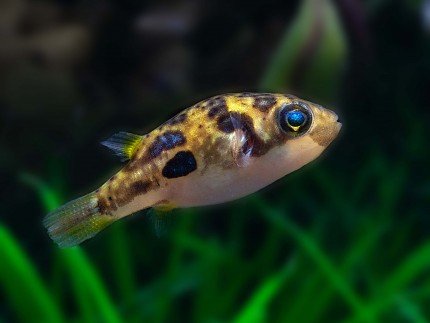




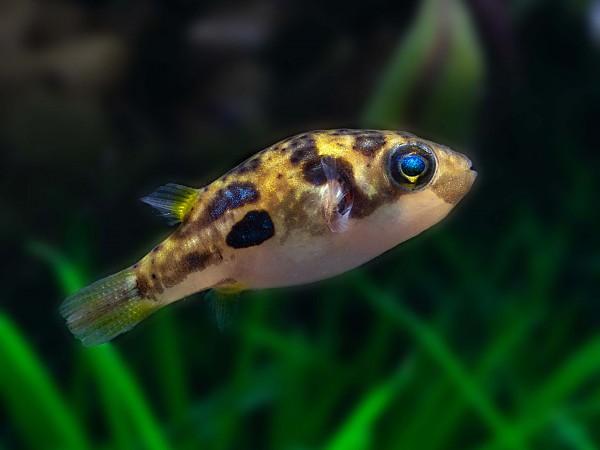
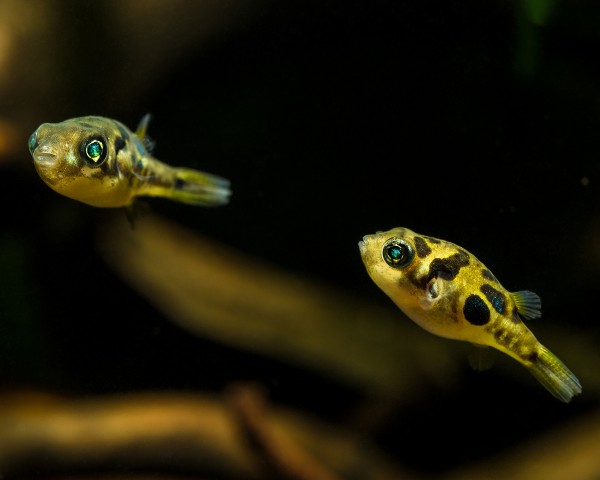



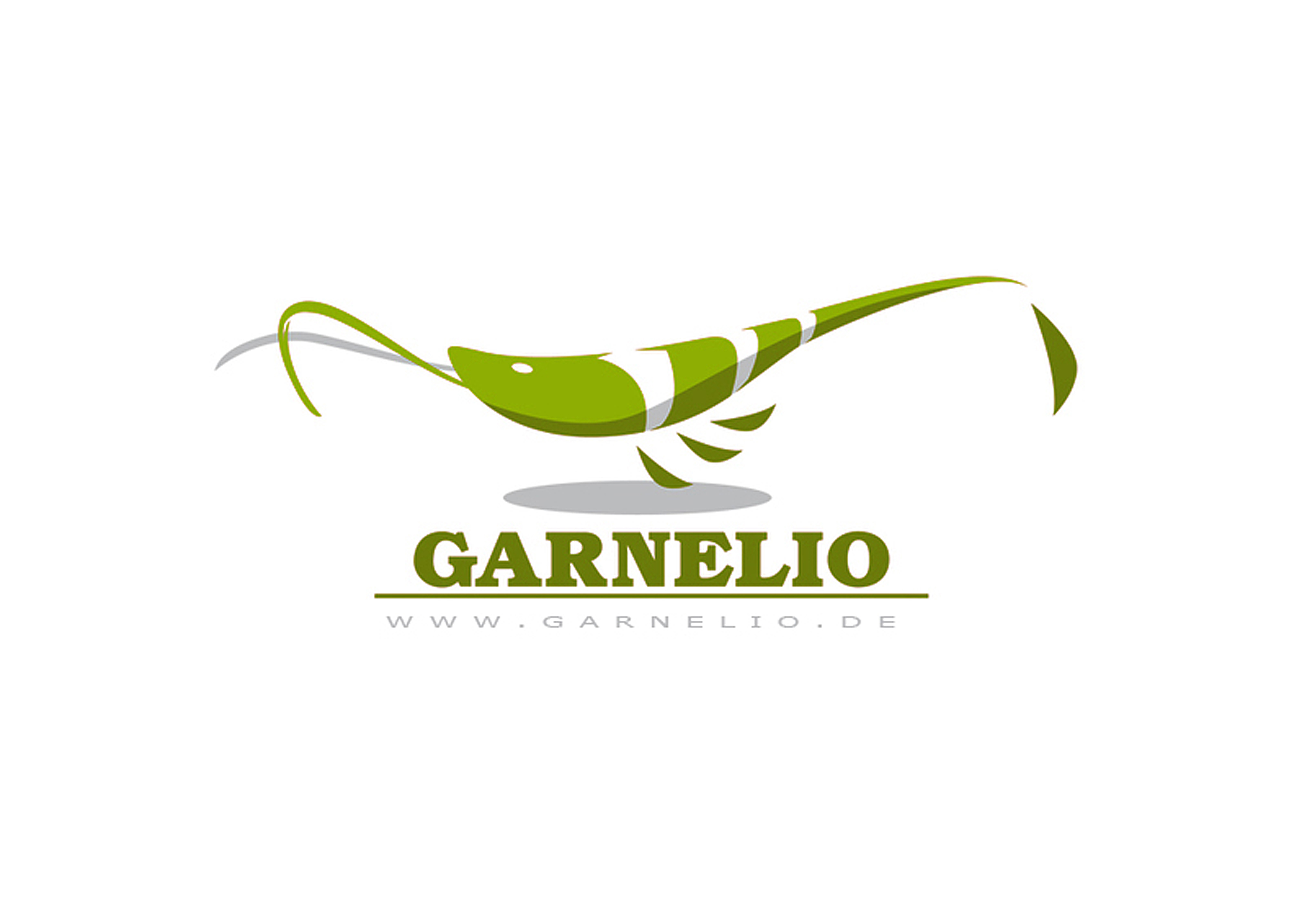
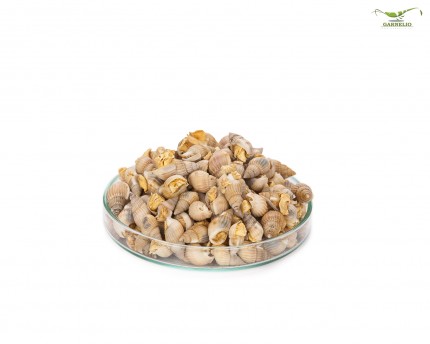
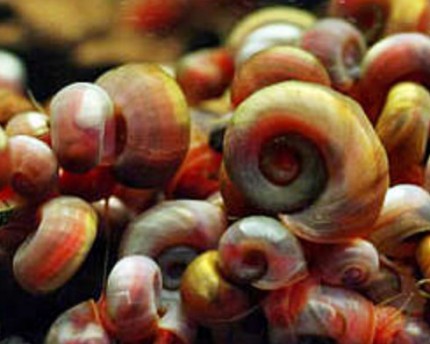

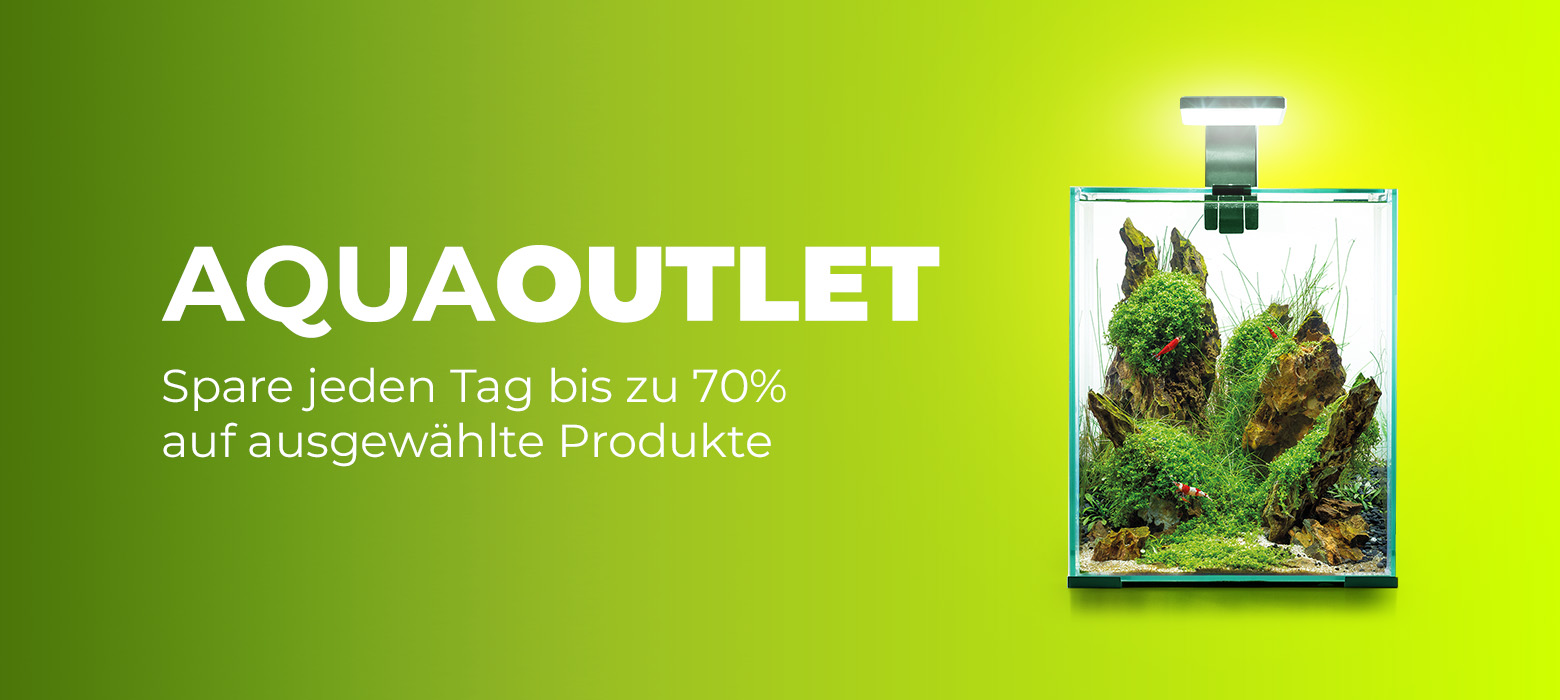
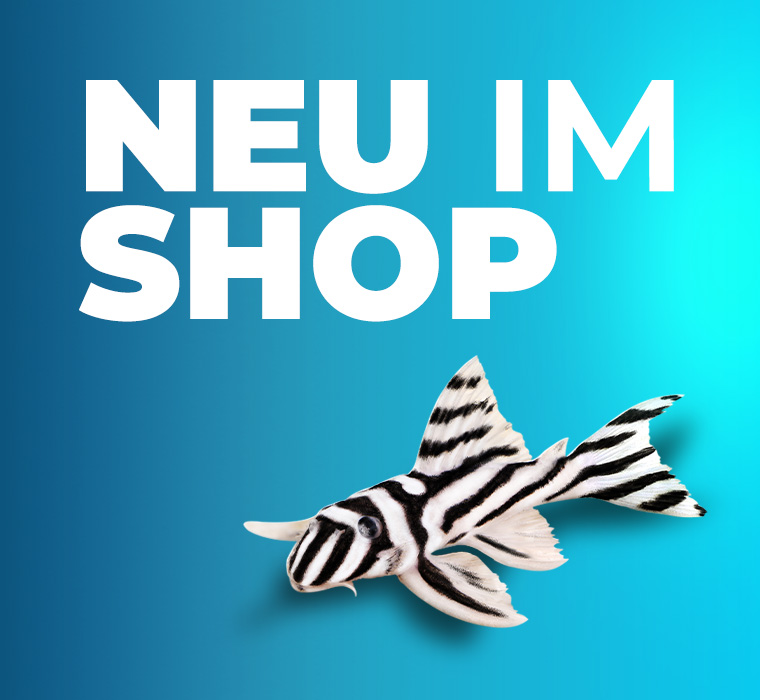
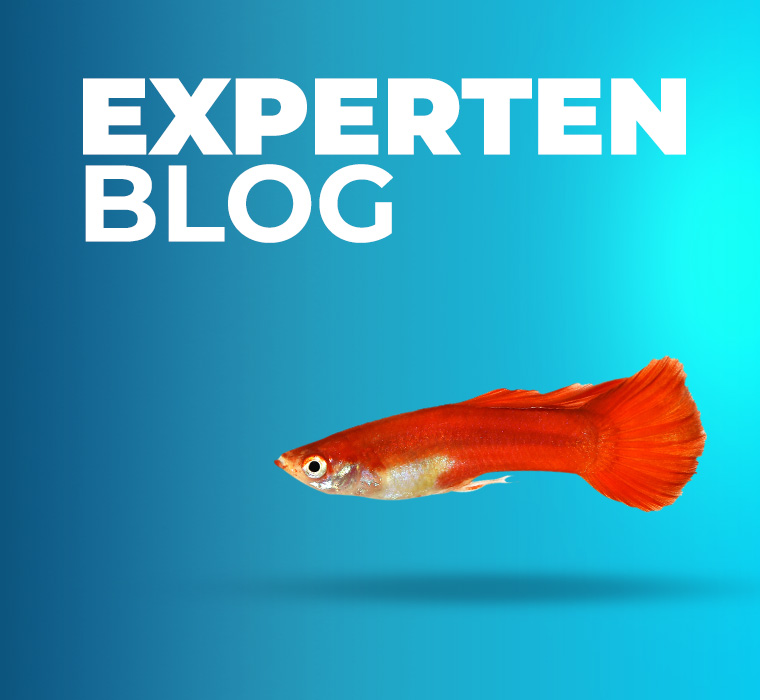

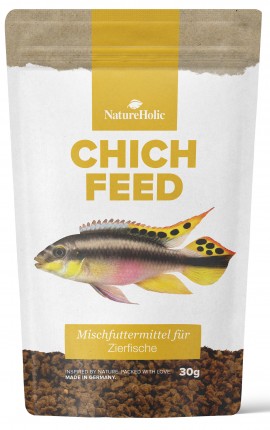
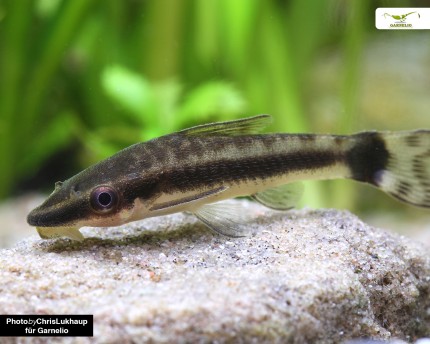
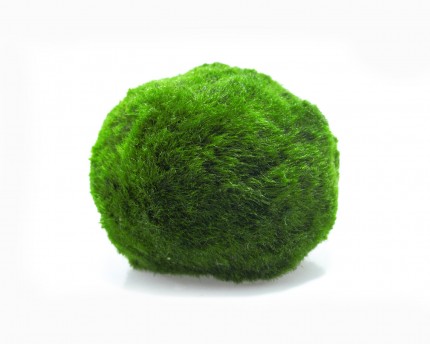
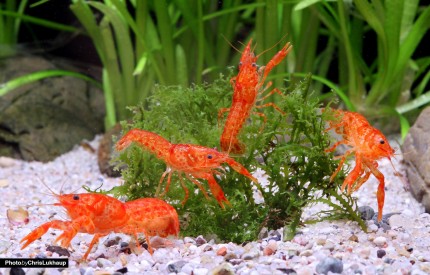
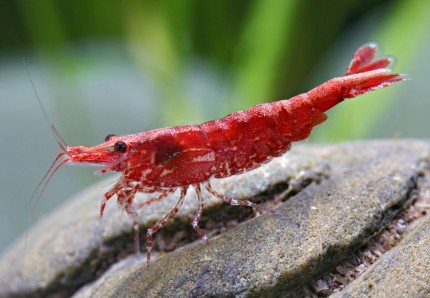
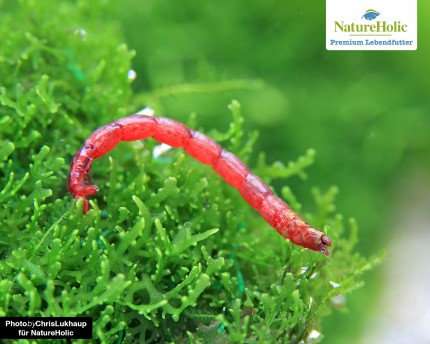
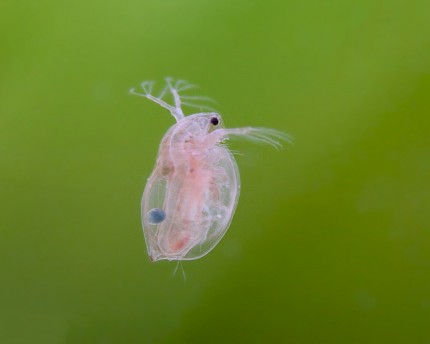
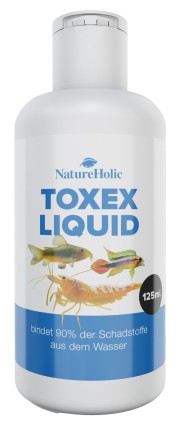
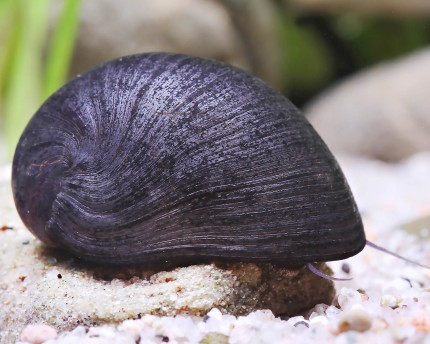
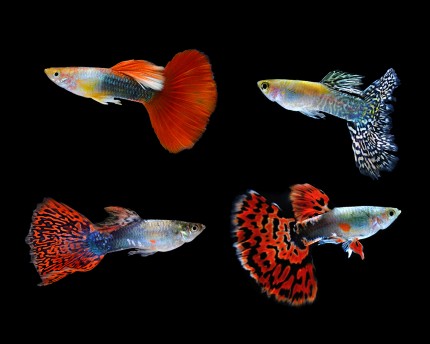
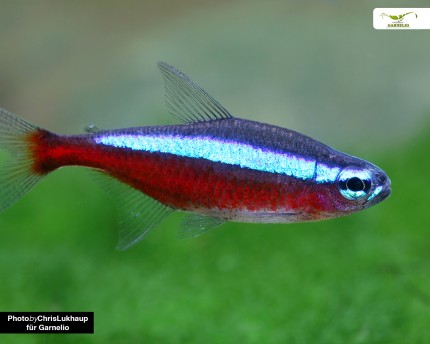
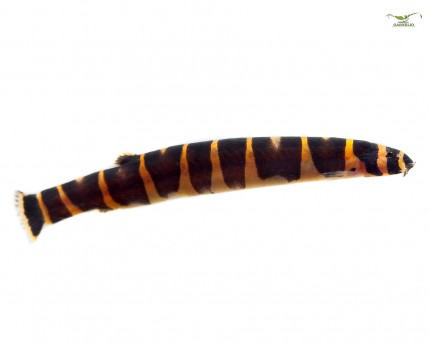
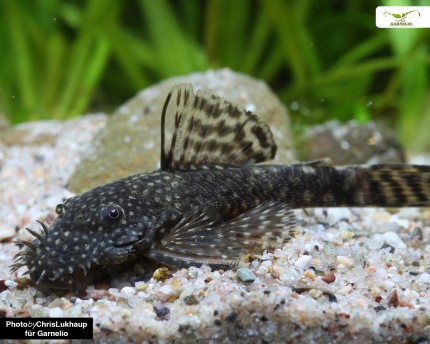
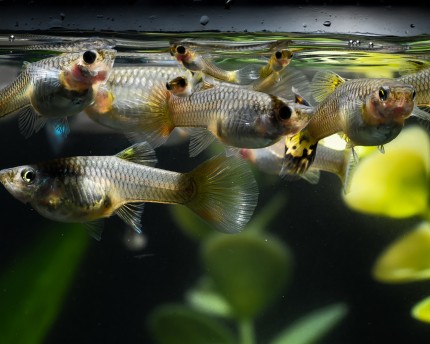

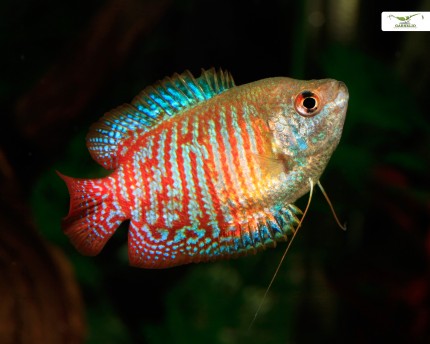
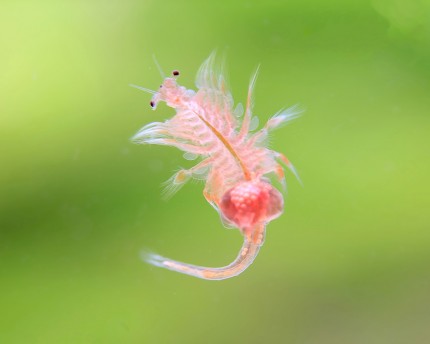
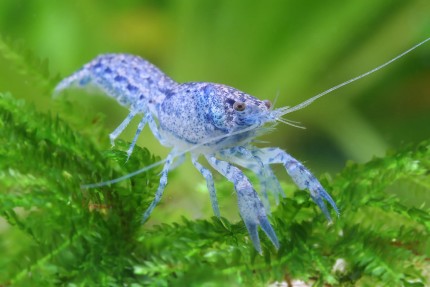
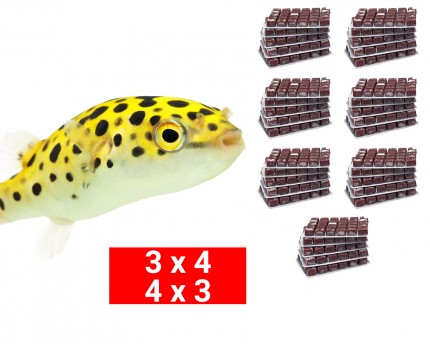
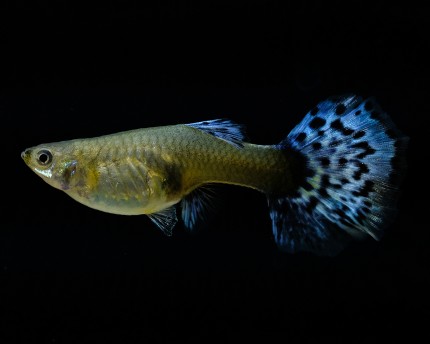
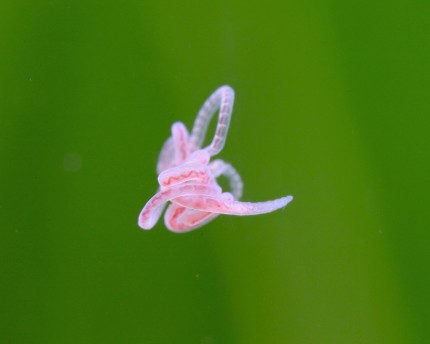
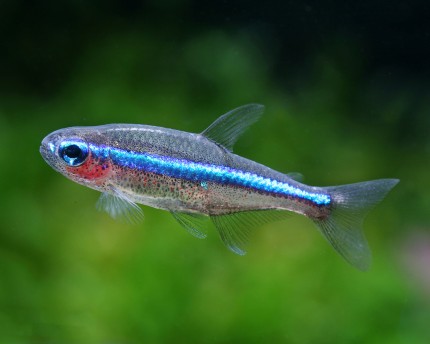
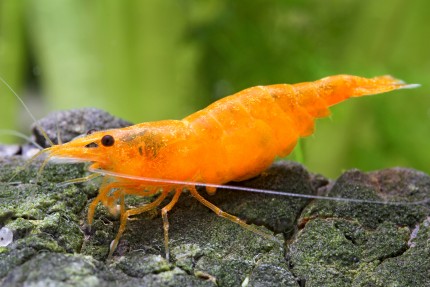
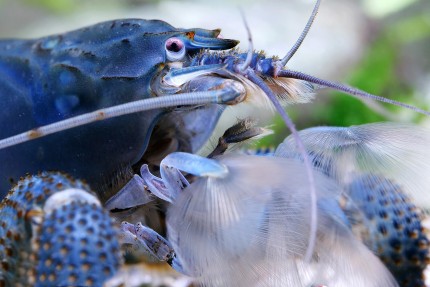
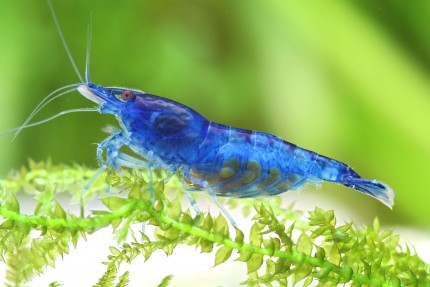
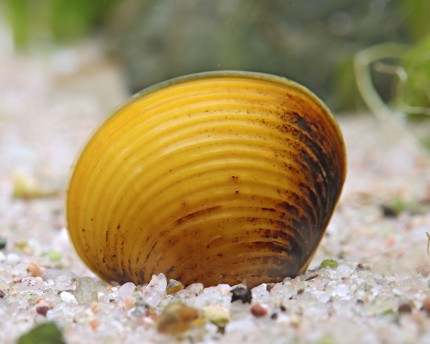
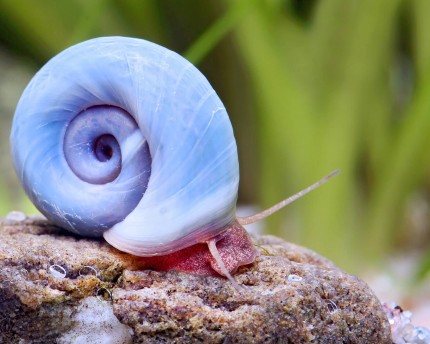
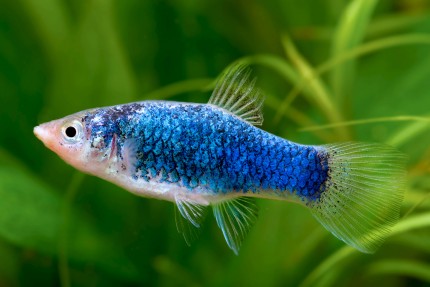
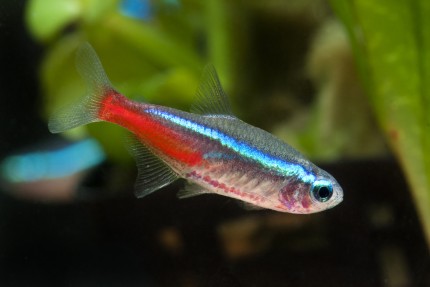
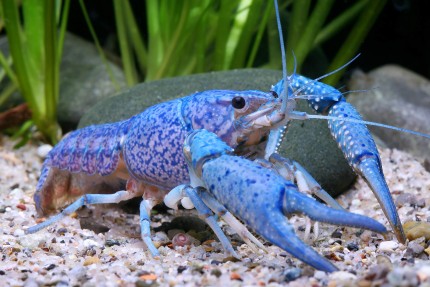
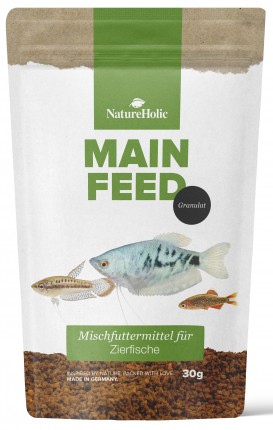
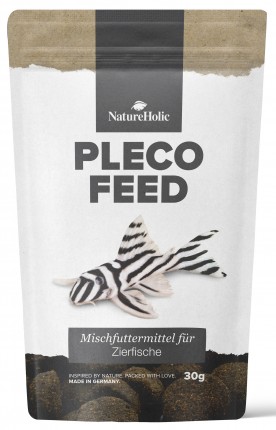
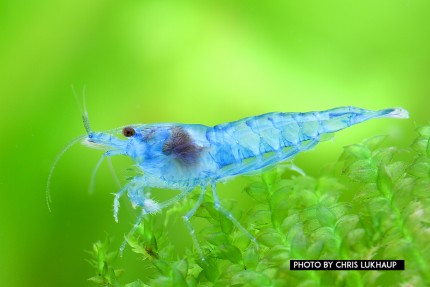
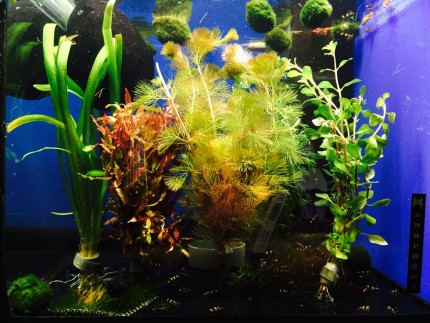
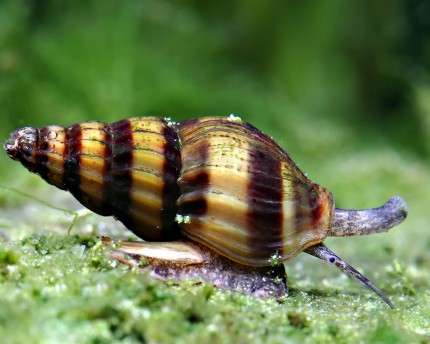
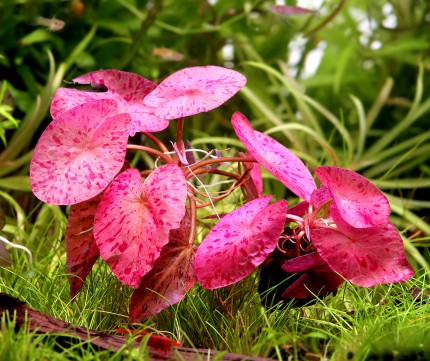
The fields marked with * are required.
I have taken note of the privacy policy.
schnelle Lieferung und gu...
schnelle Lieferung und gute Ware , sehr gerne wieder
Ich bin mit den Tieren se...
Ich bin mit den Tieren sehr zufrieden
Supi ? ...
Supi ?